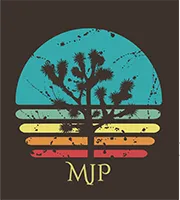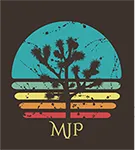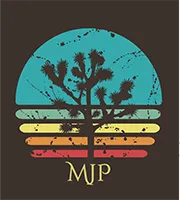Arizona Firm Represents People Charged with Violating Controlled Substance Laws
Experienced Flagstaff drug crime defense lawyer
Though there have been many discussions about the best way to address problems caused by drug abuse, strict laws and long prison sentences are still the primary methods of discouraging controlled substance use in Arizona. At the Law Office of Matthew J. Poirier PLLC in Flagstaff, I represent clients who have been charged with the unlawful possession, sale and manufacture of drugs, as well as other related offenses. Drawing on more than 15 years of legal experience, I work to get illegally collected evidence thrown out and look to secure the best possible outcome for the people I represent, whether that is a dismissal, acquittal or a resolution centered on relieving an underlying addiction rather than putting someone in prison.
Types of drug offenses and their penalties
You can rely on my firm for strong advice and representation if you’re facing these or other drug-related counts:
- Possession — The severity of a drug possession charge depends, in part, on the particular drug involved and how it’s classified under the Arizona Controlled Substances Act. Getting caught holding a narcotic or a substance defined as a dangerous drug is a Class 4 Felony. First offenders are usually sentenced to between 1 and 3.75 years if convicted. Possession of other drugs, such as peyote and inhalants, is punishable by lesser penalties, but still can be charged as a felony.
- Possession for sale — If the amount of drugs found or other evidence indicates that the defendant intended to sell narcotics or dangerous drugs, it can be charged as a Class 2 felony, which could lead to a prison sentence of 10 years or more. My firm fights back against overcharging when a prosecutor tries to allege an intent to distribute drugs where none existed.
- Manufacture — Cultivating or manufacturing a narcotic or dangerous drug is also a Class 2 felony. Though recreational marijuana use is now legal in Arizona, growing your own weed without authorization is still a felony, with the specific degree depending on the amount involved. Making a prescription-only drug is a Class 1 misdemeanor, punishable by up to six months in jail.
Often, drug-related offenses stem from a serious drug problem rather than a criminal mindset. Accordingly, diversion programs are available that focus on treatment and accountability rather than detention. My firm advocates for alternatives to incarceration whenever warranted by the circumstances.
How controlled dangerous substance schedules classify various drugs
State and federal law divide controlled substances into five groups, known as schedules, based on the danger and medical use associated with each particular drug. Unlike other jurisdictions, Arizona does not base sentencing on these schedules, but Arizona statutes address the treatment of specific substances by prescription providers based on these schedules:
- Schedule I — The category with the most dangerous drugs includes heroin, MDMA (Ecstasy) and LSD.
- Schedule II — Cases involving Schedule II substances such as cocaine, methamphetamine and fentanyl are also punished very seriously.
- Schedule III — Many Schedule III substances, including anabolic steroids and Vicodin, are commonly used for medical treatment. However, the sale or use of these compounds without proper medical authorization is a crime.
- Schedule IV — Valium, Darvon, Ambien and other frequently prescribed medications fall into Schedule IV.
- Schedule V — Certain cough medicines with codeine, as well as other prescription and over-the-counter pharmaceuticals qualify as Schedule V drugs if they are improperly possessed or sold.
Regardless of the particular substance involved, you can rely on my firm to develop a comprehensive strategy to combat the case against you.
Potential defenses against drug charges
There are many potential defenses for individuals accused of drug-related offenses, such as:
- Improper search and seizure — The Fourth Amendment of the U.S. Constitution prohibits most warrantless searches and seizures unless consent is given. If the evidence brought against you was obtained through an unauthorized intrusion or an illegal stop of your vehicle, it might be excluded at trial, severely damaging the prosecution’s case.
- Lack of knowledge — A drug possession charge sometimes stems from drugs that are found near the defendant, such as in their place of business or car. However, if others had access to that area, the individual might not have been aware that any illegal substance was there.
- Chain of custody issues — Allegations of illegal drug distribution based on witness testimony might not withstand scrutiny if a chain of custody between the defendant and the seized drugs cannot be proven.
- Entrapment — Overzealous authorities sometimes use informants and coercive methods to induce a suspect into committing a drug crime. Using this affirmative defense can pose risks, so if you believe you are the victim of entrapment, you should speak immediately with a knowledgeable criminal defense attorney.
An effective defense starts with an exhaustive review of the relevant facts. My firm takes the time to identify possible defenses and uncover evidence that exonerates clients.
Contact a dedicated Flagstaff drug crime defense lawyer for a free consultation
The Law Office of Matthew J. Poirier PLLC in Flagstaff advocates for Arizona clients accused of offenses involving controlled substances. To schedule a free consultation, please call 928-222-2803 or contact me online.



